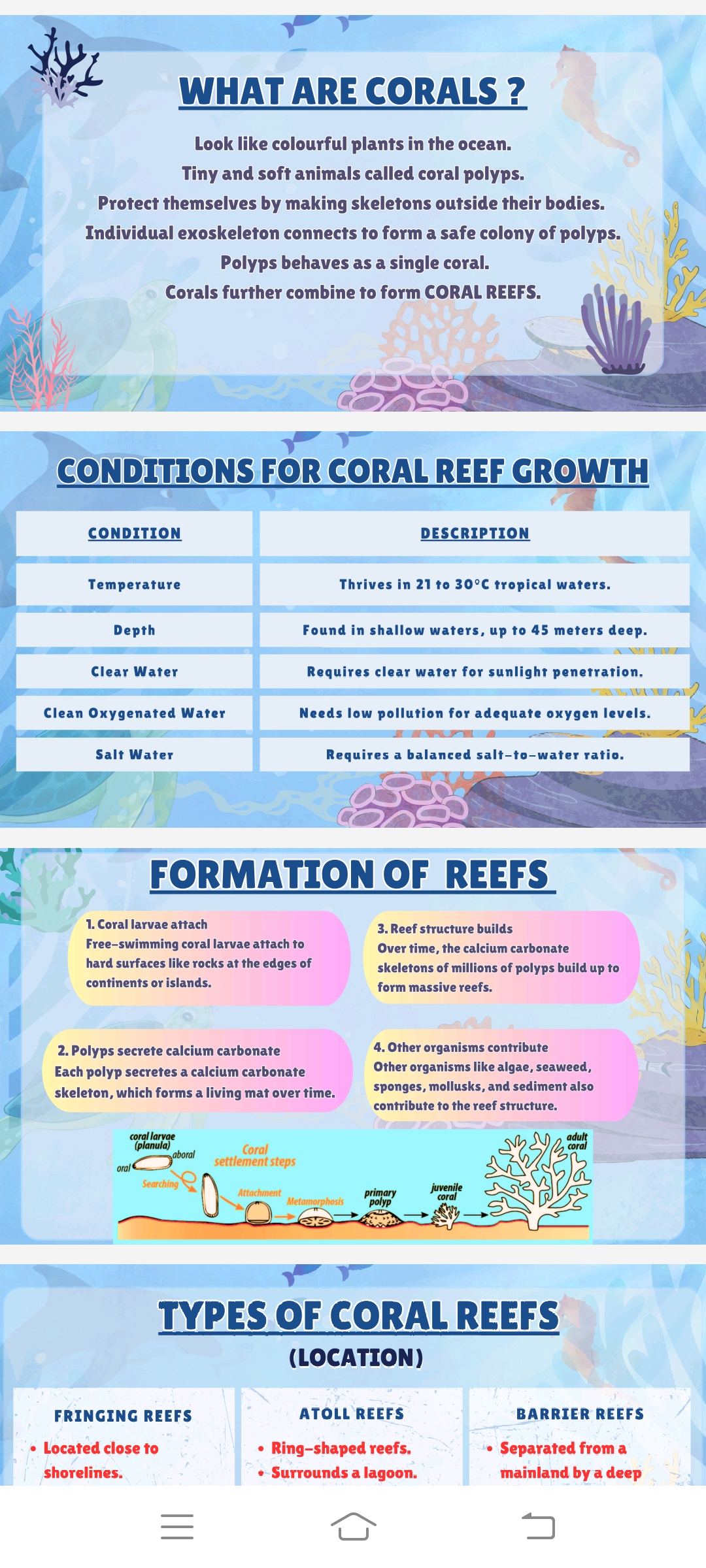What are corals, their growth conditions, formation processes, and types of coral reefs?

Understand the Problem
The question likely asks about the characteristics, conditions, and types of corals and coral reefs based on the provided information.
Answer
Corals form reefs in warm, shallow waters; types include fringing, atoll, and barrier.
Corals are marine animals forming colonies, creating reefs in tropical waters. They require shallow, clear, warm, and oxygen-rich saltwater for growth. Coral reefs form from the secretion of calcium carbonate by polyps and are classified into fringing, atoll, and barrier reefs.
Answer for screen readers
Corals are marine animals forming colonies, creating reefs in tropical waters. They require shallow, clear, warm, and oxygen-rich saltwater for growth. Coral reefs form from the secretion of calcium carbonate by polyps and are classified into fringing, atoll, and barrier reefs.
More Information
Corals, though plant-like in appearance, are animal species called polyps. They secrete calcium carbonate to form protective exoskeletons. These structures, over generations, lead to the formation of coral reefs that support vast marine biodiversity.
Tips
A common mistake is to confuse corals with plants due to their appearance and location. Remember, they are animals, specifically polyps.
Sources
- Corals Tutorial: How Do Coral Reefs Form? - National Ocean Service - oceanservice.noaa.gov
- NOAA CoRIS - What are Coral Reefs - coris.noaa.gov
- Types of Coral Reef Formations - coral.org